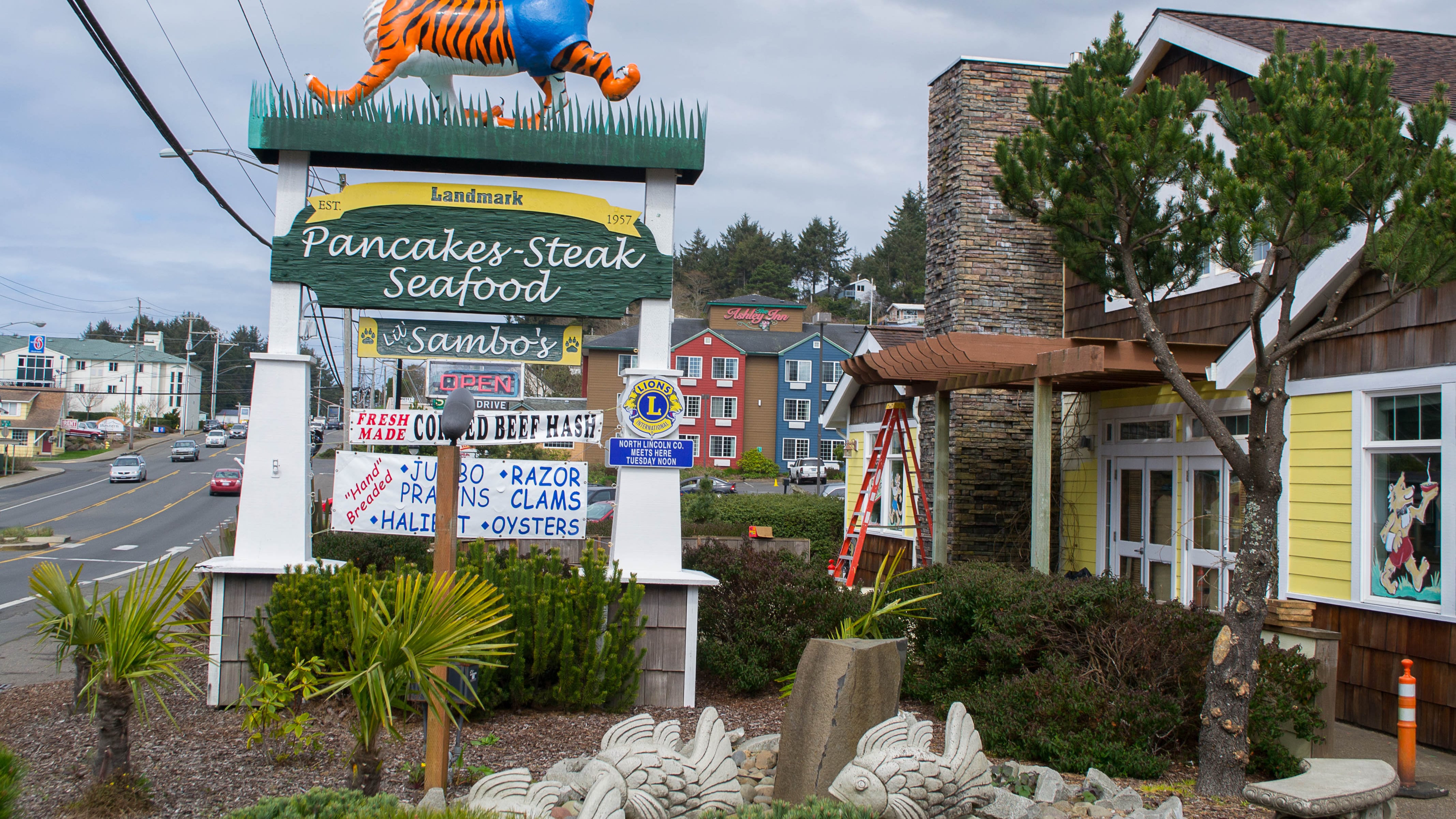A long-standing restaurant in Lincoln City that two years ago faced pressure to change its name—Lil’ Sambo’s—which was derived from a children’s book featuring racist images, is ending its run.
However, the closure has nothing to do with protests or a lack of business. General manager Cary Moore tells Lincoln City Homepage that he is simply ready to move on to another phase in his life that doesn’t include running a restaurant day in and day out.
“Sambo’s has always been a family business,” Moore stated to the Lincoln City Homepage. “My father passed away in 2020 and my mother is 94. Both of my kids have grown and moved on, so this feels like it’s time for a new chapter for me and my family.”
Sambo’s, located at the northern end of Lincoln City along Highway 101, is a 65-year-old coastal institution at this point, but one with a mixed reputation.
According to the restaurant’s website, the name—previously Lil’ Black Sambo’s—came from the children’s book called The Story of Little Black Sambo, published in 1899. The tale is about a boy with dark skin, tigers and a pancake feast, and is set in India, where the Scottish-born author Helen Bannerman lived for several decades.
The term “sambo” has been used as a slur toward Black people going back to the mid-18th century, and the illustrations in the book are filled with racist stereotypes.
The restaurant’s site goes on to say that it was never associated with the national Sambo’s chain, of which there were more than 1,000 scattered across nearly every state. The last one, operating in Santa Barbara, Calif., closed in June 2020 amid the Black Lives Matter protests following the killing of George Floyd.
The Lincoln City restaurant’s most recent owners, George and Ruth Moore, inherited the name when they purchased it in 1995. They’ve run it as a family business ever since, though George died in March 2020 at 93.
Despite the name, the diner has long been popular with locals, hosting community-oriented events and becoming the first employer for many area teenagers, while tourists tend to flock there for the breakfast food, making the property’s jorts-sporting tiger holding an umbrella in its tail something of a landmark.
In summer 2020, Sandy resident Myriam MacLeod launched a petition on Change.org calling for the rebranding of the business. The online appeal directed to Lincoln City’s mayor and city council stated that “during this pivotal time of progression toward racial equality, we demand that said restaurant change its name.”
Former Lincoln City resident and Greater Portland Sustainability Education Network board member Serena Dressel also kicked off an Instagram campaign to push for the name change and held a small demonstration in front of the restaurant. Even though she didn’t realize the name had racist origins until June, after watching Walidah Imarisha’s Oregon Black History Timeline on YouTube, she immediately felt compelled to act when she learned about the backstory.
“I actually did not start the petition myself,” Dressel told WW at the time, “but instead was contemplating with my younger sister how we could most effectively advocate for the name change beyond a two-person protest, when I stumbled upon the petition.”
Cary Moore also spoke to WW, saying there have long been rumblings about the name online, and he understood how objections gained traction amid recent events. But he added that there is also a lot of affinity for the overall brand.
“The restaurant is the oldest restaurant in Lincoln City, and so there’s attachment to that,” Moore said. “Every time this comes up, we seem to get a slew of people coming to the restaurant in support of the name. I’m not looking for that. I’m not looking to be in the middle of anything.”
Moore says he assumed that at some point there would be a name transition, but it wasn’t an option they were considering two years ago.
“We have no intention of offending anyone. We just want to serve breakfast. But I think there will be a day when this changes. This is not what we’re thinking about today,” Moore said. “It’s a brand we inherited and a brand the locals have a lot of affection for. That’s what’s always been important to me—that this is important to the locals.”
So far, Moore has not announced a specific closing date, but it will happen sometime before 2023.
